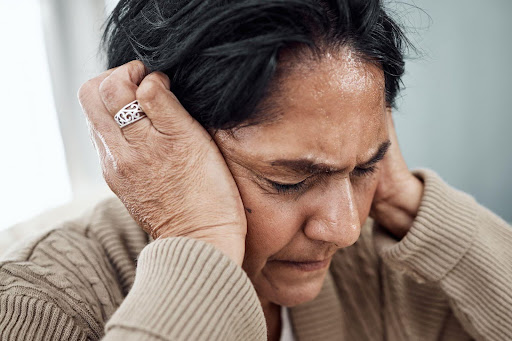
Menopause Depression: Is it Real?
Managing Menopause Depression: A Step-by-Step Guide
Menopause and depression – a connection that’s more than just a coincidence. Research shows that up to 80% of women experience depression during menopause. But why? It all comes down to hormones. During menopause, estrogen levels plummet, affecting neurotransmitters like serotonin, which regulate mood. This hormonal shift can lead to feelings of sadness, hopelessness, and anxiety. Add to that the physical symptoms of menopause – hot flashes, sleep disturbances, and weight gain – and it’s no wonder depression can creep in.
A study published in the Journal of Women’s Health found that women experiencing severe menopause symptoms were more likely to develop depression. But here’s the thing: menopause depression is not a sign of weakness. It’s a common experience that many women face. By understanding this link, we can break the silence and seek help. So, let’s learn more about it.
The Role of Hormonal Changes in Menopause Depression
Hormonal changes – the culprit behind menopause depression? Well, it’s not that simple, but they play a significant role. During menopause, estrogen levels drop dramatically, affecting neurotransmitters like serotonin and dopamine, which regulate mood. Imagine a seesaw effect: serotonin and dopamine levels follow suit as estrogen levels decrease. This hormonal shift can lead to feelings of sadness, anxiety, and hopelessness. But that’s not all – estrogen also influences the production of endorphins, our natural mood boosters.
With lower estrogen levels, endorphins take a hit, making it harder to shake off depression. Research shows that women with lower estrogen levels are more likely to experience depression during menopause. So, it’s clear: hormonal changes are a key player in menopause depression.
Symptoms of Menopause Depression: What to Expect
Menopause-related depression – it’s not just about feeling sad. The symptoms can be sneaky and varied, making it hard to recognize.

Here’s what to expect:
- Mood Swings: One minute you’re fine, the next you’re in tears.
- Anxiety: Racing thoughts, worries, and fears that won’t quit.
- Sleep Disturbances: Insomnia or excessive sleepiness – either way, it’s exhausting.
- Fatigue: Feeling drained, even after resting.
- Loss of Interest: Hobbies and activities that once brought joy now feel meh.
- Concentration Problems: Brain fog that makes it hard to focus.
- Physical Symptoms: Headaches, joint pain, and stomach issues.
- Irritability: Snapping at loved ones for no reason (or so it seems).
- Feelings of Worthlessness: Negative self-talk and self-doubt.
Remember, these symptoms can vary in intensity and frequency. Some days may be worse than others. But here’s the thing: recognizing these symptoms is the first step to seeking help.
How to Treat Menopause Depression
Feeling lost in the darkness of menopause depression? Learning How to Treat Menopause Depression is the first step towards finding your way back to happiness. Here’s a comprehensive guide to get you started:

- Talk to a Doctor or Therapist: Share your symptoms and develop a personalized plan.
- Lifestyle Changes
- Regular Exercise: Boosts mood and energy.
- Healthy Eating: Fuels your body and mind.
- Stress-reducing Techniques: Yoga, meditation, or deep breathing.
- Support Groups: Connect with others who understand.
- Medication or Hormone Therapy: If needed, to regulate mood and alleviate symptoms.
Treating menopause depression takes time and patience. Be gentle with yourself and celebrate small victories. By learning how to treat menopause depression, you’ll gain the tools and knowledge to manage symptoms, improve relationships, and reclaim your life.
Depression During Menopause Natural Remedies for Relief
Depression During Menopause is common, but there are natural remedies to help.
Try these:
- Omega-3 Rich Foods: Fatty fish, flaxseeds, and walnuts support brain health.
- Herbal Supplements: Ashwagandha (Helps reduce stress, anxiety, and cortisol levels) Brahmi (Enhances mood, memory, and cognitive function) Tulsi (Reduces stress, anxiety, and depression symptoms.
- Aromatherapy: Essential oils like lavender, chamomile, and bergamot have a calming effect on the mind and body, reducing stress and anxiety.
- Exercise: Regular physical activity releases endorphins which are natural mood-boosters.
- Mind-Body Therapies: Yoga, meditation, and deep breathing reduce stress and anxiety, promoting relaxation and calmness.
- Vitamin D: Maintaining optimal levels of vitamin D supports mood regulation and overall mental health.
- Gut-Friendly Foods: Fiber-rich fruits, veggies, and probiotics promote a healthy gut-brain axis, reducing symptoms of depression.
Remember to consult your healthcare provider before starting new supplements or therapies. By incorporating these natural remedies into your daily routine, you’ll be empowered to manage depression during menopause and reclaim your well-being.
Menopause Depression Treatment: Exploring Your Options
Feeling overwhelmed by menopause depression? You’re not alone! There are many effective treatment options available to help you manage symptoms and regain control of your life.
Let’s explore your options:
- Hormone Therapy: Relieves hot flashes and night sweats, which can contribute to depression.
- Antidepressants: Helps regulate mood and reduce symptoms of depression.
- Therapy: Counseling and talk therapy can help you cope with emotional changes.
- Lifestyle Changes: Regular exercise, healthy eating, and stress-reducing techniques can boost mood.
- Alternative Therapies: Acupuncture, herbal supplements, and mind-body therapies like yoga and meditation may also help.
Remember, everyone’s experience with menopause depression is unique, so it’s essential to work with your healthcare provider to find the right treatment plan for you.
Menopause Depression Medication: What You Need to Know
Navigating menopause depression can be a daunting task, but understanding your medication options can empower you to take control of your mental health. Here’s what you need to know:
- Types of Medications: Antidepressants (SSRIs, SNRIs, and tricyclics), hormone therapy (HT), anti-anxiety medications, and mood stabilizers are commonly used to treat menopause depression.
- How they Work: Medications can help regulate mood, reduce symptoms, and address hormonal imbalances contributing to depression.
- What to Expect: It may take some trial and error to find the right medication and dosage. Be patient, and don’t hesitate to speak up about any concerns or side effects.
- Lifestyle Changes Matter: Medication works best when combined with healthy habits like regular exercise, balanced eating, and stress-reducing activities.
- Talk to Your Doctor: Openly discuss your medical history, symptoms, and concerns with your healthcare provider to find the best treatment plan for you.
Remember, you’re not alone. Many women have successfully managed menopause depression with medication and lifestyle changes. You can too! By understanding your menopause depression medication options and working closely with your healthcare provider, you can find relief from menopause depression and start living a happier, healthier life.
Conclusion
Menopause depression is a common yet often misunderstood experience that can leave women feeling isolated and lost. But there is hope! By acknowledging the emotional and physical changes that come with menopause, we can begin to break down the stigma surrounding depression and seek the help we need.
Remember, menopause depression is not a sign of weakness, but a sign that we need to take care of ourselves. With the right combination of self-care, lifestyle changes, therapy, and medication (if needed), we can find relief and thrive during this new chapter in life.
Don’t suffer in silence – reach out to healthcare providers, loved ones, and support groups for guidance and connection. You are not alone in this journey! By sharing our stories and experiences, we can create a supportive community that empowers women to take control of their mental health and well-being. Take the first step towards healing and hope today. You deserve to live a happy, healthy, and fulfilling life – menopause and beyond!
Join Miror’s supportive community and explore our resources designed to help you navigate this stage of life with confidence and strength. Let’s embrace this journey together. Visit our website www.miror.in to learn more and connect with others on the same path.
Citations
- Soares et al. (2001). Hormonal changes during menopause and their relationship to depression. Journal of Clinical Psychology, 57(2), 161-171.
- Kumar et al. (2018). Relationship between menopause symptoms and depression in postmenopausal Indian women. Journal of Women’s Health, 27(10), 1139-1146.
- National Institute on Aging (2019). Menopause: What’s Happening to My Body?




